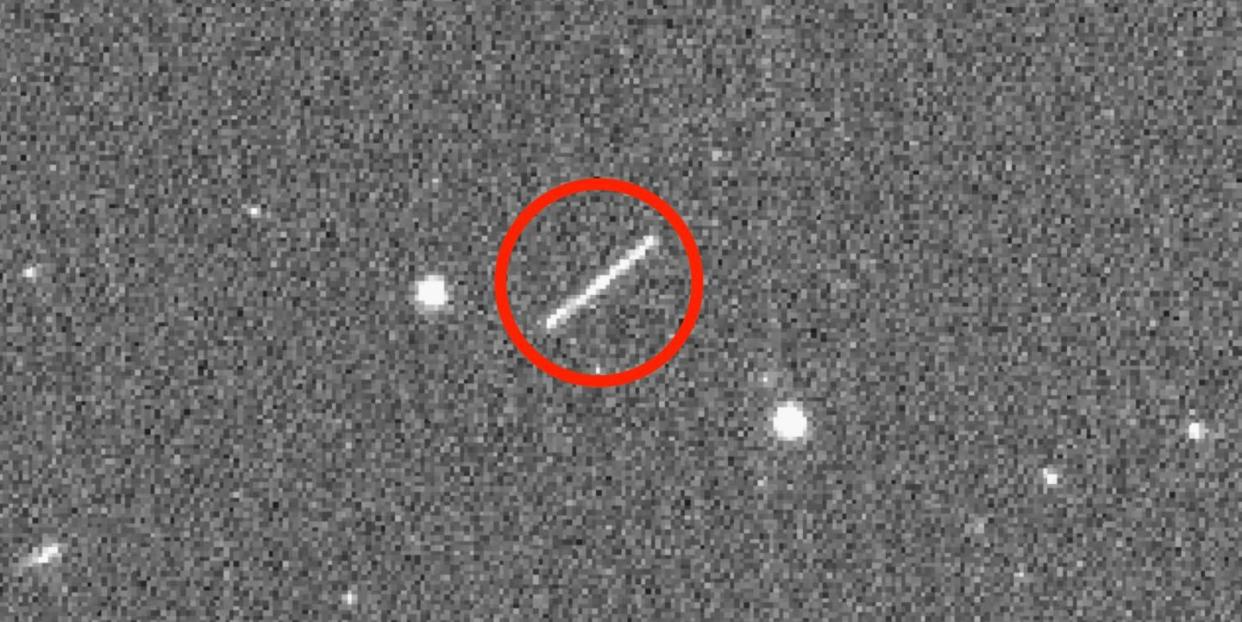This Truck-Sized Asteroid Came a Little Too Close to Earth for Our Liking

An SUV-sized asteroid called 2020 QG zipped past Earth on Sunday, coming within 1,830 miles of our home planet.
This is the closest flyby ever recorded.
Scientists are working around the clock to track potentially hazardous asteroids like 2020 QG.
An asteroid the size of a Ford Bronco just swung by Earth in the closest recorded flyby of a celestial object yet. The close call occurred on Sunday, August 16, at 12:08 a.m. EDT, as the asteroid (2020 QG) flew just 1,830 miles above the southern Indian Ocean.
For reference, the distance between Las Vegas and Chicago is almost 1,800 miles. 2020 QG flew past Earth at a clip of about 8 miles per second, according to NASA.
🌌 You love cool space stuff. So do we. Let's nerd out over space together.
Asteroids in 2020 QG's size range (approximately 10 to 20 feet wide) are extremely difficult to spot. A student in India first noticed the space rock and alerted researchers at the Zwicky Transient Facility at Caltech's Palomar Observatory in California, according to SyFy Wire. Researchers confirmed the asteroid 6 hours after its closest approach as it sped away from Earth.
According to NASA, asteroids of this size pass close to Earth a few times a year. A meteoroid called 2011 CQ1 previously held the title for closest recorded approach, with its 3,400-mile flyby in February, 2011. When asteroids do slide past Earth, their trajectory is altered by our planet's gravitational pull. Astronomers were able to witness this shift in 2020 QG's orbit.
"It's really cool to see a small asteroid come by this close, because we can see the Earth's gravity dramatically bend its trajectory," Paul Chodas, director of the Center for Near-Earth Object Studies (CNEOS) at NASA's Jet Propulsion Laboratory, said in a press statement. "Our calculations show that this asteroid got turned by 45 degrees or so as it swung by our planet."
So what would have happened if the asteroid did hit Earth? Fortunately, nothing catastrophic. It likely would have burned up in Earth's atmosphere, in a dramatic fireworks display like the breakup of an asteroid that exploded over Chelyabinsk, Russia in 2013. Though most of the 66-foot meteor burned up on approach, it still caused some damage: Windows shattered as the meteor plowed through Earth's atmosphere, injuring more than a thousand people in the region.
Don't lose too much sleep over asteroids like 2020 QG. Astronomers at institutes like the Center for Near-Earth Object Studies, the Catalina Sky Survey, and the International Astronomical Union Minor Planet Center are keeping an eye out for potentially hazardous objects that could one day cross paths with Earth.
You Might Also Like

